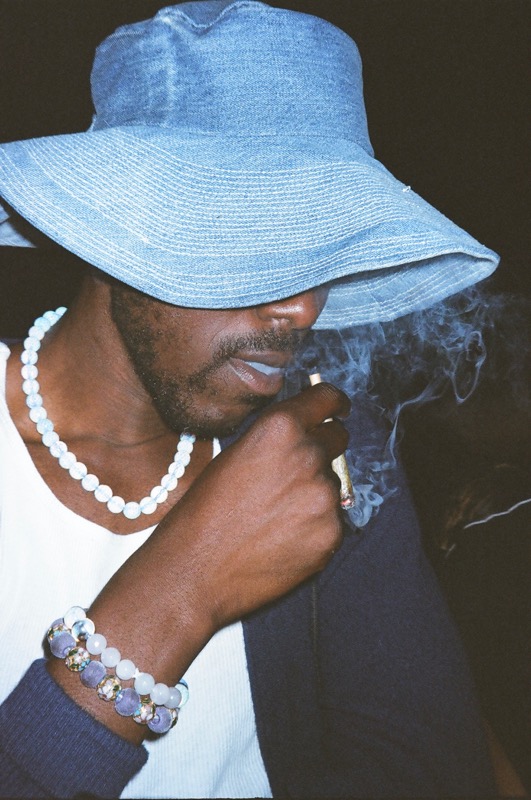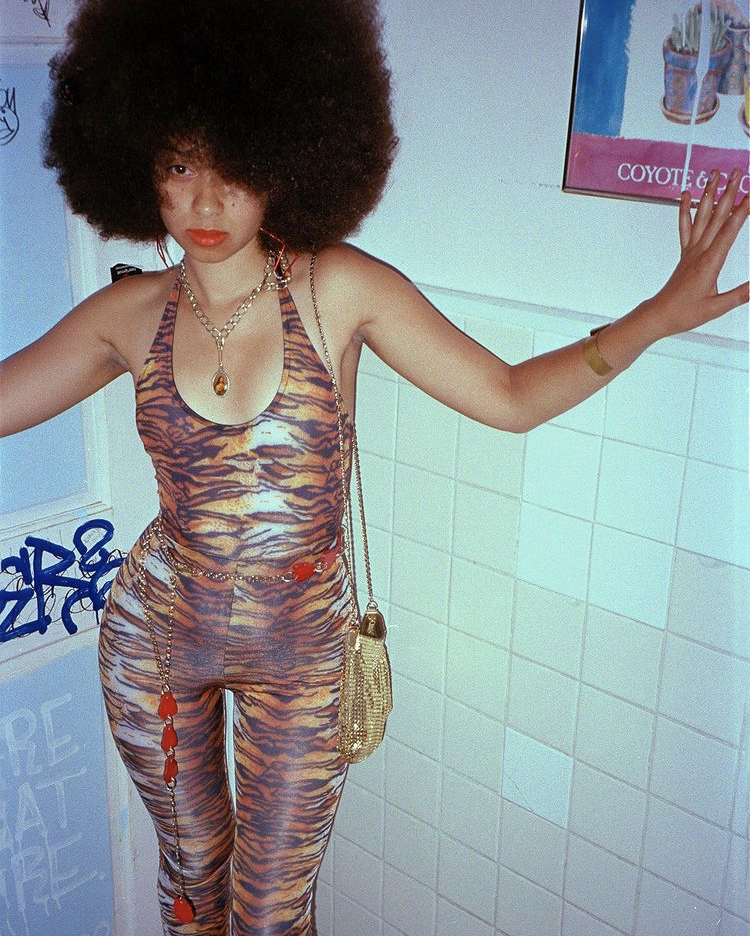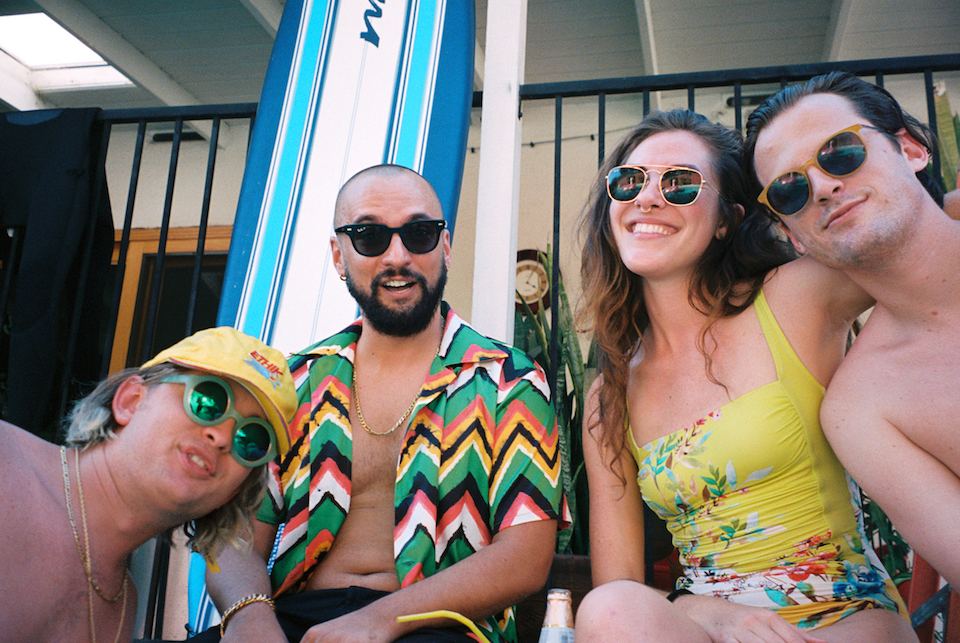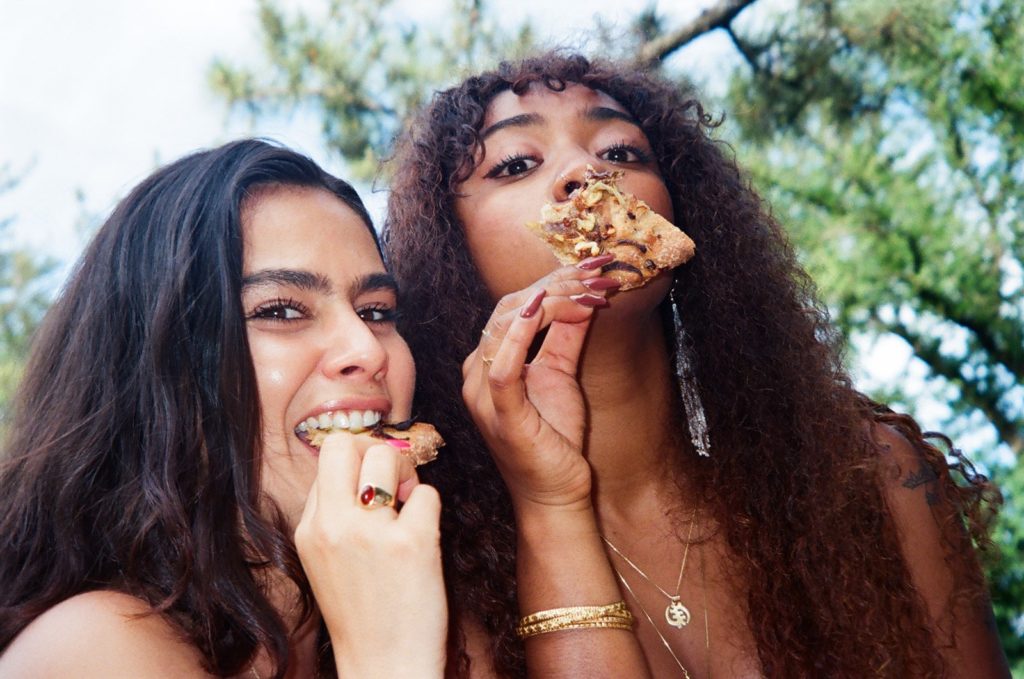Ah, summer. How sweet it feels.
Like insatiable baby butterflies who eat beats for breakfast, we emerge from our quarantine cocoons hungry for a taste of eternal youth. Gone are the days of empty restaurants and vacant bars. Now are the days of vaccine cards, the honor code and a Shot Girl Summer reminiscent of the free love era. Thirsty youths are back in the streets and tanning on the beach, fiending for skin-to-skin contact and salivating over the smell of sweat dripping on an underground dance floor.

Yes, it is so dramatic. The excitement simply exudes summertime. Whether you’re bursting at the seams or the thought of socializing again is actually seriously irking your inner peace, the season of social engagements is upon us. Proceed at your own risk.
But what has happened to us during the fever dream of social distancing? As we open our wings to the world again, I interviewed professional therapists who work with young adults from the west coast to the conservative south.
Let’s take a certified pulse on our metamorphosis.

With a drip coffee in hand, I opened my laptop to meet Alicia Brandt from a hotel courtyard in Eugene, Oregon. Alicia is a marriage and family therapist based in Los Angeles. She works with clients aged 21 and older using psychodynamic (talk) and EMDR (eye movement desensitization and reprocessing) therapies. At this point, chatter of a national re-opening is just arising. A few weeks later, I met virtually with L.P. Watts, a licensed clinical social worker and certified sex educator working with clients aged 18 and older in Atlanta. Over two separate video calls, I asked Alicia and L.P. to each identify the common themes that they observed during lockdown.
As our country re-opens, it’s clear that the immediate release of going to a bar and kissing a stranger has been sorely missed.
“I’m a very sex-positive therapist,” Alicia said. “I really love my clients who are experimenting with polyamory and what intimacy means to them.” L.P. echoed this sentiment. “When we do surveys at the university, everybody knows what polyamory is,” she said. “Many of them report experimenting with sexual activities that in the past would have been considered nontraditional. Now there is a much greater tolerance and curiosity.”

Alicia predicted that “shot girl summer” as she calls it would feature a PRIDE era “like it’s 1974”. The month of June saw exuberant parades take over city streets. Even though June flew by, queer culture is still celebrating. A small town called Sandpoint in Idaho will host its first ever PRIDE event in July. But as youngin’s, we may lack important historical context that would help us to make sense of this post-but-not pandemic moment. Alicia astutely compared living through COVID to what she witnessed during the emergence of the HIV/AIDS epidemic. The same swirling questions have arisen again. Who do I trust? Do I trust myself? Is that person lying to me? Have they been exposed? Is this person safe? Do I want to risk it?
With all these questions of where we place our trust, hooking up has been more challenging than usual (see also: orgasm inequality). We’ve seen quick partnerships form with rapid intensity as young couples have been forced to confront commitment very early on. It’s a common tale now — “They knew each other for two months and moved in together.” A rushed approach creates challenges and still, it is a chance to learn something about yourself. L.P. shared that many young adults in her practice have taken up contemplative practices during the pandemic to support their mental health (like yoga and journaling). “When people are doing that, that translates into their relationship,” she noted. “When they enter relationships with a better concept of who they are, what they want to offer and what they’re looking for, they perceive them to be more successful.”

Now, Alicia observed, “There is a joyousness to the war being over. As a youth, you can experience that on a different level than an older person. If you’re not in a relationship, and you’re physically healthy, I think there will be more relief, going out and meeting people. Campgrounds are full. Beaches are crazy. People just want to have contact and celebrate life after so much death.”
Naturally, I can’t help but feel that the war is only over as a matter of our perception, like how taking care of our inner world makes us perceive our external relationships as more successful. In reality, COVID cases continue to develop even among vaccinated people and reality, or really whichever version you subscribe to, continues to be in debate.
Amidst the enormous death toll, our mental health has definitely had its low points. However, I was happy to hear from Alicia that there was actually a decrease in suicides over the last year. On the bright side, “sitting with ourselves didn’t kill us,” Alicia said matter-of-factly. “People are people are people. We all went down fucking rabbit holes. Hopefully we found a connection somewhere and hopefully it can become a universal experience. During a lot of other epidemics, like World War II or AIDS, we weren’t all connected on Zoom.”

Of course, we relied on a variety of outlets for temporary relief. We saw more substance abuse and a rise in digital intimacy and porn thanks to platforms like OnlyFans. L.P. shared that her clients have been “experimenting with online communities as a support system or a sexual outlet.” We also talked about the pros of watching porn with your partner, but I think that topic deserves its own column. For some, the pay-for-access model of OnlyFans has been an incredible outlet to form real relationships in a digital space. For others, OnlyFans has “been like gambling,” said Alicia, who also works with gambling addicts. The underlying question in her therapy sessions is always why we have difficulty sitting with the fear or loneliness that leads us into a habit gone out of control. Online community also begs the question, is this digital space real? “We’re always creating in our own minds what the other person means,” Alicia pointed out.
As we peel back layers, our conversations meander into the deep space of evolving identity.

“One of the benefits of the pandemic is that people are able to see more parts of themselves.”
Since nothing is as it once seemed, we have all been looking at ‘normal’ and doing our best to understand what is ‘normal’ and wondering whether we qualify. L.P. said, “[My clients] tell me they don’t feel like themselves. What does feeling like yourself mean? The assumption is that when you’re alone, you are your most authentic self. However, what we’re learning through research done during this time, is that yes, we do understand who we are in the context of our relationships with other people.” Then there’s the neuro-typical conversation, which “is fucking huge on TikTok,” exclaimed Alicia. “People have been self diagnosing,” leading young people to identify with being on the spectrum because they perceive themselves as different from other people that they see as ‘normal.’ Their perception of themselves in this case is a result of a comparison to others, which doesn’t necessarily make their diagnoses true.
A skewed self perception is just one product of the digital world we live in.
I asked Alicia and L.P. what they think of labels as a tool for self comprehension versus public consumption when it comes to gender expression, sexuality and our presentation. Personally, I feel conflicted about my own attempts to use language to describe or understand myself, particularly my fluid sexuality. Language is inherently limited and in my experience, it compartmentalizes aspects of myself without wholly unifying me or my complexities. It’s also an ever-evolving tool — word connotations change quickly. L.P. agreed, “A lot of the new words and vocabulary are so grass roots. It’s just validation that there really are no experts, there are just people who try to keep up and share information with the bigger population.” Labels can feel constructive and empowering, but I also witness the way labels can create pressure to identify something that is not yet concrete or understood, which has unleashed extreme anxiety in some of my friends. Is this a sign of the digital times or just part of growing up?

“The goal of therapy is to find the authentic self and to live the authentic self, and sometimes that requires a label and sometimes it doesn’t,” Alicia said. “Some people really love the labels. I like to see that it shifts, I like the metamorphosis and change.” Addressing anxiety, Alicia said, “When I was growing up, my mother thought that anxiety came up because everyone was smoking pot. I believe it’s social media, [everyone is] comparing themselves to people. Every generation has a unique set of issues.” For mental health support, Alicia highlighted the benefits of mindfulness practices that she uses to support her clients. Suffering in life is inevitable, she reminded me. The question is, how will we accept and walk through it?
As our conversation came to a close, Alicia took me back to her own youth, offering a window of perspective from a life well lived.
“We believe so strongly in every phase that we’re in.”
“When I went off to college I started off as a hippie and quickly became the worst fucking punk in the world,” she mused. “And then I became boss lady and so on.” This is what our youth is all about. We try on the multitude of characters within us, and we watch each other “try on all the different costumes” of sexuality, gender, intimacy and connection.

As young people, we haven’t lived long enough to view each phase on our life’s full timeline — that’s what makes it all so special. We are who we are and time helps us see ourselves more clearly. Time also gives us continuous self exploration. L.P. offered a refreshing take for outlining the lifeline of our sexual development, comparing it to a career development approach.
“Let’s say you work until you’re 70. You can sit down and make plans, create metrics, hold yourself to those metrics, you’ll do a performance improvement plan [and so on]. We see that as well in fitness and academics. Sexual development doesn’t stop after you get ‘The Talk’ in your junior high school gym class. People of all ages enjoy vibrant sexual lives, whatever that is for them. When I have worked with clients to create a timeline for their sexual development, it helps them feel more empowered about their trajectory. Sometimes it doesn’t work out as an effective healing approach, but adverse experiences don’t define you. You are still in control of your body and how you view it, and who you are as a sexual citizen.” To borrow L.P.’s career metaphor, could you get fired? Yes, she says, and it still doesn’t define you.
“The grace of age is that you let your freak flag fly,” Alicia laughed, then continued in sincerity. “Trauma is weird and pervasive. We all have it. It’s the ‘I am’ thoughts. I am afraid, I am an imposter, I am incapable. That’s the trauma. It affects how you perceive yourself in the world in different spaces.”
Stay curious and compassionate.
The threads of my conversations with each of these women have continued to unravel inside me since we spoke. They remind me how valuable and nourishing inter generational conversations can be, along with the importance of patience in the face of change. In essence, my disco loving dance babes, stay curious and compassionate. Prioritize and take care of your health. Set the fragmented binary aside in favor of the bigger picture. You are the full picture, the sum of your puzzle pieces on any given day, as some go and others stay.
xo,
Viv
This piece was originally published on The Kollection. If you liked this, read “Freak in the Sheets.“